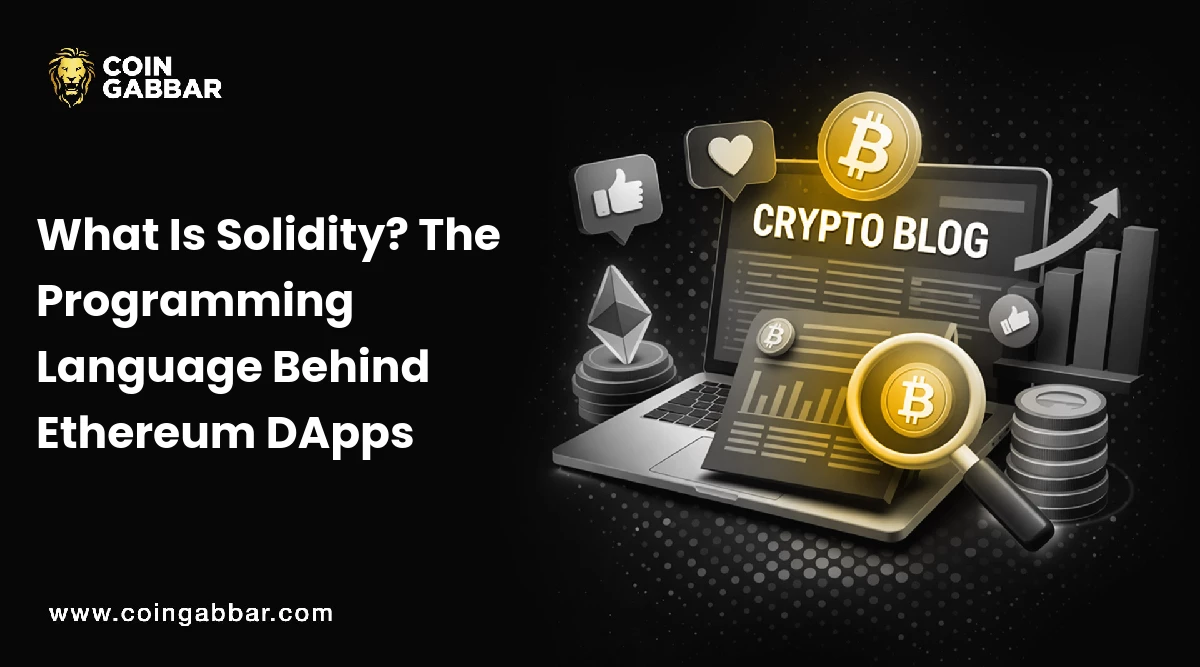
You may have heard of Ethereum, but what about Solidity? Solidity is the programming language that allows developers to create contracts for Ethereum-based applications. It's been gaining in popularity lately, as more and more people are seeing the potential of Ethereum as a platform.
But what is Solidity, exactly? And how can you learn to use it? In this article, we'll give you a brief introduction to Solidity and show you how to get started learning this important programming language.
Solidity is a programming language that was specifically designed for developing contracts on the Ethereum platform.
It's a pretty new language, but it's gaining in popularity because of the security and flexibility it offers. Solidity is also Turing-complete, which means that it can handle any computation that can be done in other programming languages.
One of the coolest things about Solidity is that it's compiled down to bytecode, which is what's run on the Ethereum Virtual Machine. This makes it possible to write contracts that are secure and can't be changed once they've been deployed.
Solidity is important because it's the programming language that allows developers to create contracts for the Ethereum platform.
It's based on the JavaScript, c++, and Python programming languages, which means that it's easy for developers to learn. And that's a good thing because the more people who are able to create contracts for Ethereum, the more viable this platform is going to be.
So if you're a smart contract developer, or if you're thinking of becoming one, Solidity is the language you need to learn. With the increase in the adoption of blockchain technology and Ethereum, more and more Solidity programmers will be in demand.
By now, we know that we can create smart contracts with Solidity. But there's so much more that you can do with it. You can create decentralized applications, or DApps, for example, a blockchain-based candy-crush-like game.
Dapps are applications that run on a decentralized network—in other words, they're not controlled by a single entity. This is what makes them so powerful; they're not beholden to anyone.
And because they're built on the blockchain, they're secure and tamper-proof. Plus, they're transparent and open source, which means anyone can view the code and contribute to their development.
When you're starting out with Solidity, it can be a little bit overwhelming. There's so much to learn, and it's a pretty complex language. But don't worry, we're here to help.
Even if you don't know how to code, don't worry. There are plenty of resources out there to help you get started. Courses, tutorials, and even Solidity forums are all available online.
Online platforms like Udemy also have Solidity tutorials for cheap and are a great place to start. They'll walk you through the basics of the language, and show you how to write your first smart contracts.
If you want to learn Solidity for free, Youtube has some excellent channels that help you learn Solidity along with blockchain basics.
Apart from all these, the best platform to keep in mind is their official website, which you can access by clicking here.
Disadvantages of Solidity
Solidity is an excellent programming language and is almost perfect for coding on multiple blockchains.
But as with any new programming language, there are a few disadvantages to using Solidity. For one, it can be a little tricky to learn. There's a lot of new terminology to learn and a few quirks that you need to get used to.
Solidity is also susceptible to security vulnerabilities. Because it's based on JavaScript, there are certain things that hackers can do that they can't do with other programming languages. So it's important to be vigilant about security when you're coding with Solidity.
Finally, Solidity is not as robust as some of the other programming languages out there. It doesn't have all the libraries and functionality that you might find in languages like Java or Python. But this is something that's being developed and added all the time, so it's getting better all the time.
Solidity is a pretty impressive language. You might be wondering how it works.
Well, let's take a look at an example. Say you want to create a new cryptocurrency. You would start by creating a contract, which is basically just a set of instructions that tell the Ethereum network what you want to happen.
In Solidity, you would write these instructions in code, and then compile them into a bytecode that can be run on the blockchain. Once your contract is created, it lives on the blockchain and can be used by anyone who wants to interact with it.
Solidity is a fairly new language, but it's quickly gaining traction thanks to its potential for creating secure and reliable applications. It may not have as many libraries and features as Python but the Solidity community is pretty Robust and the language is growing every day. If you are new to the programming world or want to enter the blockchain world as a developer, Solidity is a good start.

Kartik Sharma is a dedicated crypto writer in blockchain and digital assets. His goal is to simplify cryptocurrency for everyone, whether you're a beginner or an experienced investor. From Bitcoin and altcoins to NFTs and DeFi, he breaks down complex topics into easy-to-understand insights.Kartik stays updated on market trends, price movements, and new technologies, ensuring his readers always have the latest information. His writing is clear, engaging, and designed to make crypto education simple and exciting.Believing in the power of blockchain, he is passionate about helping people navigate the fast-changing digital economy. His articles don’t just provide facts—they make crypto interesting and accessible for all. Whether you’re looking to learn or stay informed, Kartik’s insights will guide you through the world of cryptocurrency with ease.
8 months ago
Latest in crypto technology

2 years ago
THE COMMUNITY TEAM HIGHLY RECOMMENDS AND VERIFIED MRS KAREN TOMPSOM AS THE ONLY PROFESSIONAL TRADER TO AID YOU IN ALL TRADING RELATED ISSUES,,HER SERVICES ARE BEYOND HUMAN IMAGINATION THAT'S THE MORE REASON SHE WAS BEEN VERIFIED BY THE COMMUNITY TEAM.. CONTACT HER ON ɪɴꜱᴛᴀ•ɢʀᴀm@👉 { *karentompsom* } *FAST AND PROFITABLE TRADES *DEVELOPING TRADING SKILLS
